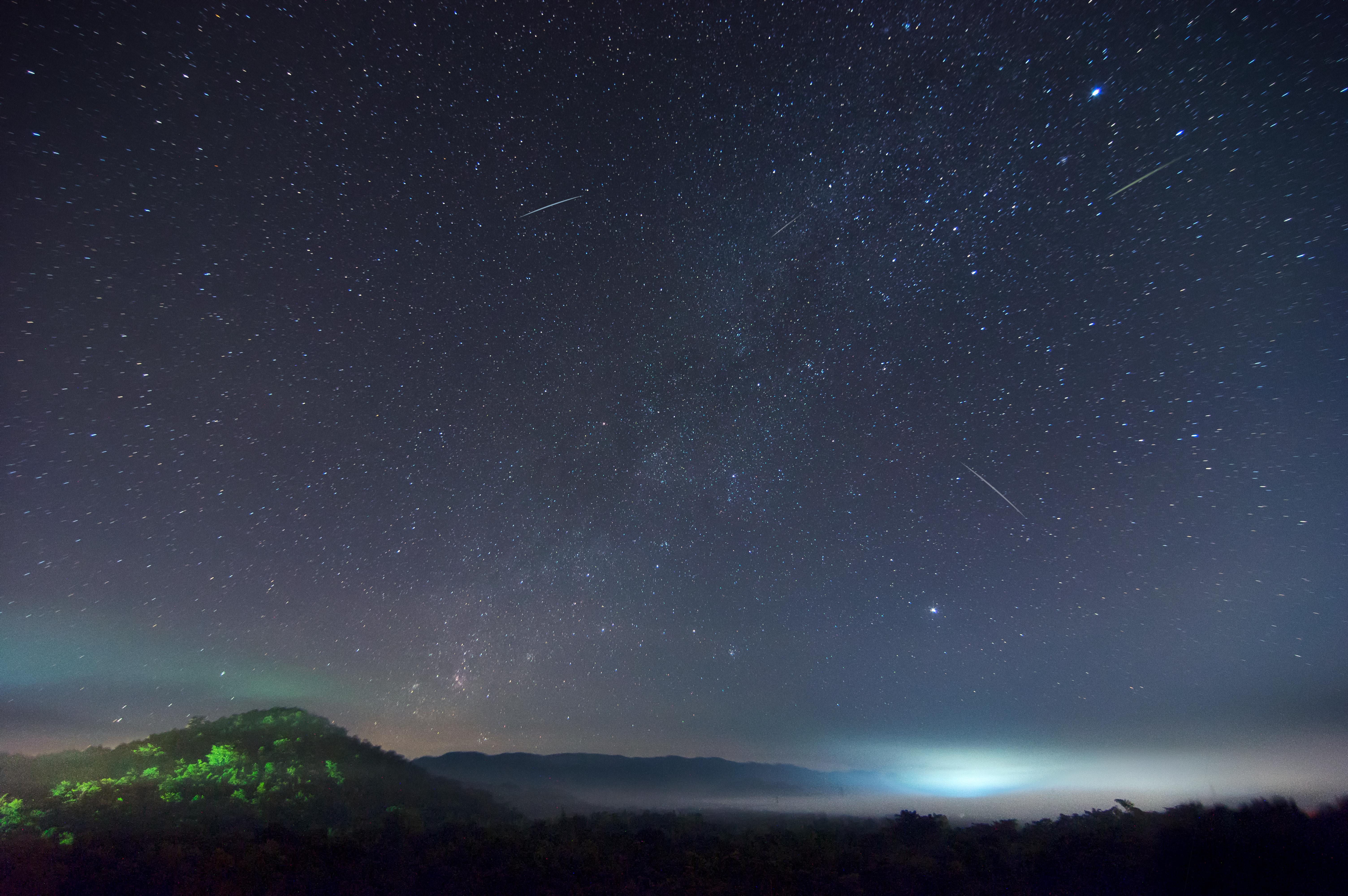The annual Leonid meteor shower is coming up!
The Leonid meteor shower will light up the night sky this month and put on a socially distant spectacle for everyone to enjoy. The meteors will peak after midnight into the early hours of Tuesday, November 17, right before dawn. This year, the Lyrid meteor shower will be just a couple of days after the new moon, giving you plenty of chances to see these celestial streakers with no lunar interference.
The Leonids, which happen during mid-November every year, can have 10-15 meteors per hour during their peak. Although the Leonids are not the best show, watching just one meteor flying across the sky can count as a big thrill. A good percentage of these meteors leave glowing trails of ionized gas as they streak through the Earth's atmosphere that can be seen for a few seconds.
What are the Leonids?
The Leonids are famous for having “stormed” multiple times in the past. The first meteor storm happened nearly 200 years ago, in November of 1833, and it heavily impacted the scientific study of meteors. Before the storm, meteors were thought to be an atmospheric phenomenon, like rain or snow. But in 1865, astronomers discovered the Tempel–Tuttle comet and that its orbit around the sun was 33 years. After this discovery, some astronomers predicted that there would be another Leonid meteor storm on the next perihelion (closest point to the sun) in November of 1866. And, to the surprise of many, it happened. The last Leonid storm was February 28, 1998, and its next expected perihelion will be on May 20, 2031. So we’ve got some years to wait before the next Leonid storm happens.
Where can you find them?
Their radiant, or the point in the sky from which the Leonids appear to come from, is the constellation, Leo the Lion. Though it’s not necessary to locate the radiant point to watch the Leonid shower, since meteors fly all through the starry skies, it’s fun to know where it lies. Here in San Diego, Leo will rise over the eastern horizon after midnight and then climbs to its highest point in the southern sky around 6:30 a.m.
Did you miss
The Sky Tonight event this month on comets and meteor showers? Don't worry! We have it available for you on our
YouTube chanel.

